“Sustainable Agriculture”!!!
~Science x Agriculture x Global~
The U.S.A., University of Rhode Island
3rd-year of the Department of Chemical and Biological Engineering: NAGAO, Miyu
Period of study: July 16/2022 – September 11/ 2022
TOBITATE! Study Abroad Initiative (Professional Course)
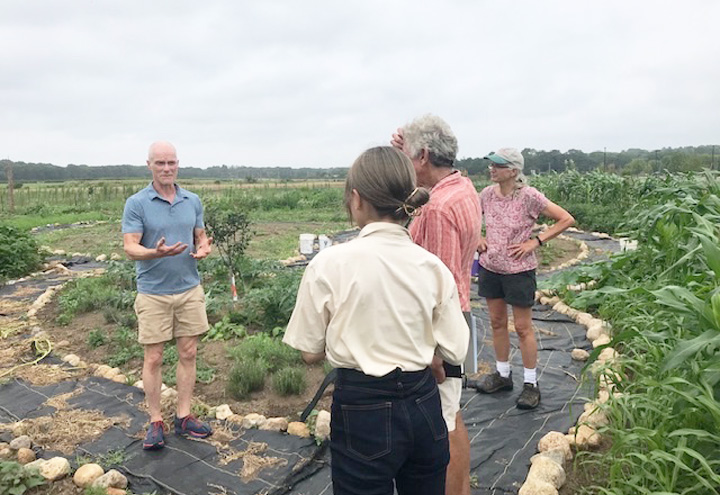
Lecture at the University of Rhode Island
I studied at the University of Rhode Island which was located on the east coast of the U.S.A. I visited 3 NPOs and farms via the university. I learned about agrochemicals, agricultural management, and the sixth industrialization of agricultural products by assisting the farmers.
I did homestay and attended training at the farms from 8 am to 1 pm on weekdays.
The first farm was large and it had been lasting for 60 years. Their main business was to run fruit picking and a store to sell their products. During the 3 weeks of training, I pruned apple trees, planted corn and I learned the difference between Japanese agriculture and U.S.A. agriculture through many specialized technologies. Also, I was allowed to make some pickles, which was the recipe I made and proposed when I was in Japan, in the kitchen of the store. The blueberry pickles got a good review, and they said they would consider commercializing it.
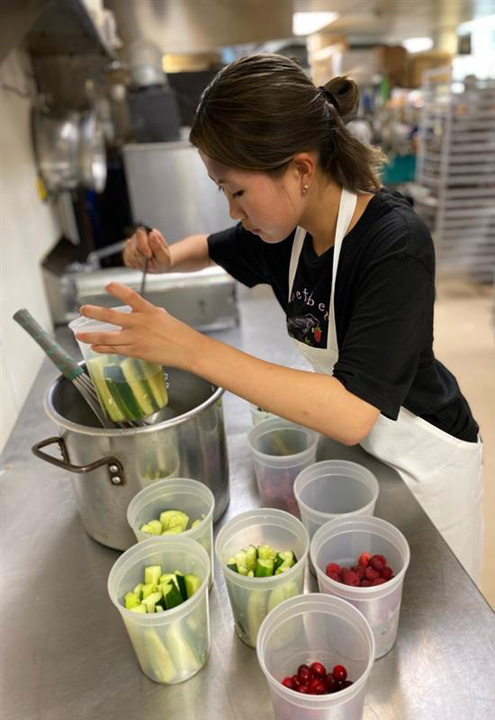
Making pickles at the farm during training
The second farm was run by a couple who quit their jobs in Boston and started the farm 5 years ago. Their main business was CSA (a system in that customers pay the fee first and they receive seasonable vegetables twice a week) and a farmer’s market (open twice a week in the local areas in the U.S.A.).
During the 3 weeks of training, I harvested and maintained over 15 types of crops. All of their staff were young females, so I felt comfortable talking to them during the training. When I asked them, “Why did you choose agriculture?”, they answered, “We can get involved in from preparing soils to selling produces, and we can see how happy the customers are. Isn’t it great?”. I still remember well when they said that.
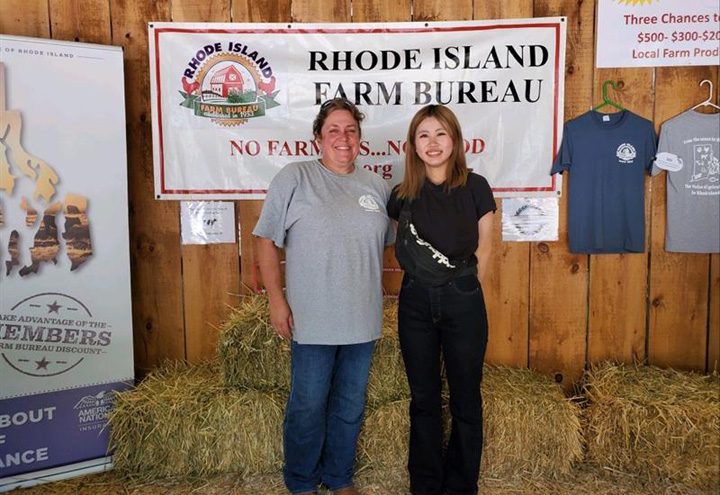
With a local farmer
The third farm was an NPO that was responsible for organizing local districts. They planned and opened a farmer’s market, and organized an agricultural summer school for kids during the summer holiday. (In the U.S.A., it is not allowed to leave children alone at home, so some parents send their children to a summer school.) During the 2 weeks of training, I joined lectures to learn how to plan and held events, also I joined a summer school. I learned agriculture broadly.
The common thing in all the 3 farms I had training was that they all did “organic farming”. It is not the mainstream in Japan, but an organic farm is popular branding in the U.S.A. Farmer’s Market (Flea Market for vegetables) and has a demand. For example, there was no time without customers for 4 hours. I would like to make the organic farming/ Farmer’s Market to be mainstream in Japan and contribute to the Local Production Local Consumption which leads to SDGs.
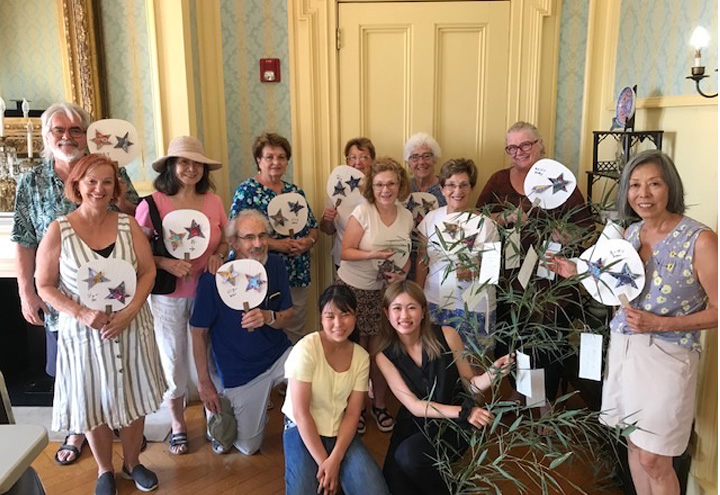 Explained Tanabata culture to local people |
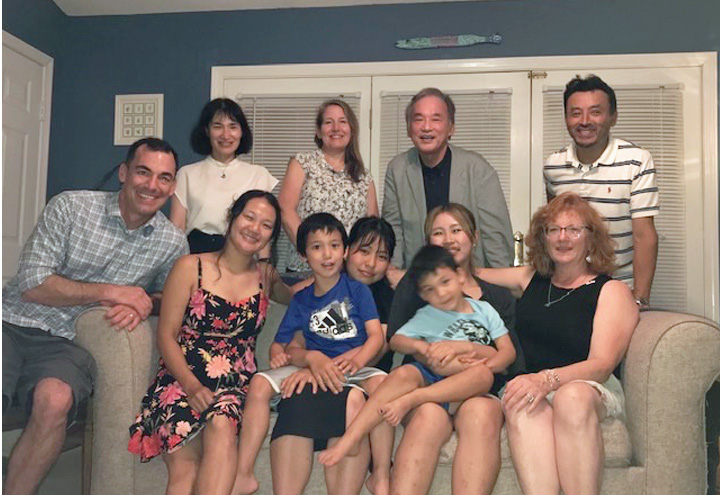 With my host family and agent |
What I learned through the training is “do my best for everything”. Before I came to Kosen, I was given what to do, so most of my attitude toward studying and behavior was passive. But Kosen respects independence, so we get only minimal assignments. I didn’t notice “it is my responsibility to study or not” and I used to think “it is not cool to be aggressive”. I had such an attitude toward school life before. But I grabbed the opportunity to study abroad when I had the kind of thought. I was not good at English, but local people in the U.S.A. said to me, “You are trying so hard to tell us what you want to say in English, and we want to help you”.
I re-recognized that “do my best” was cool because it was not an ordinal thing. So I would like to do my best for what I want to do.